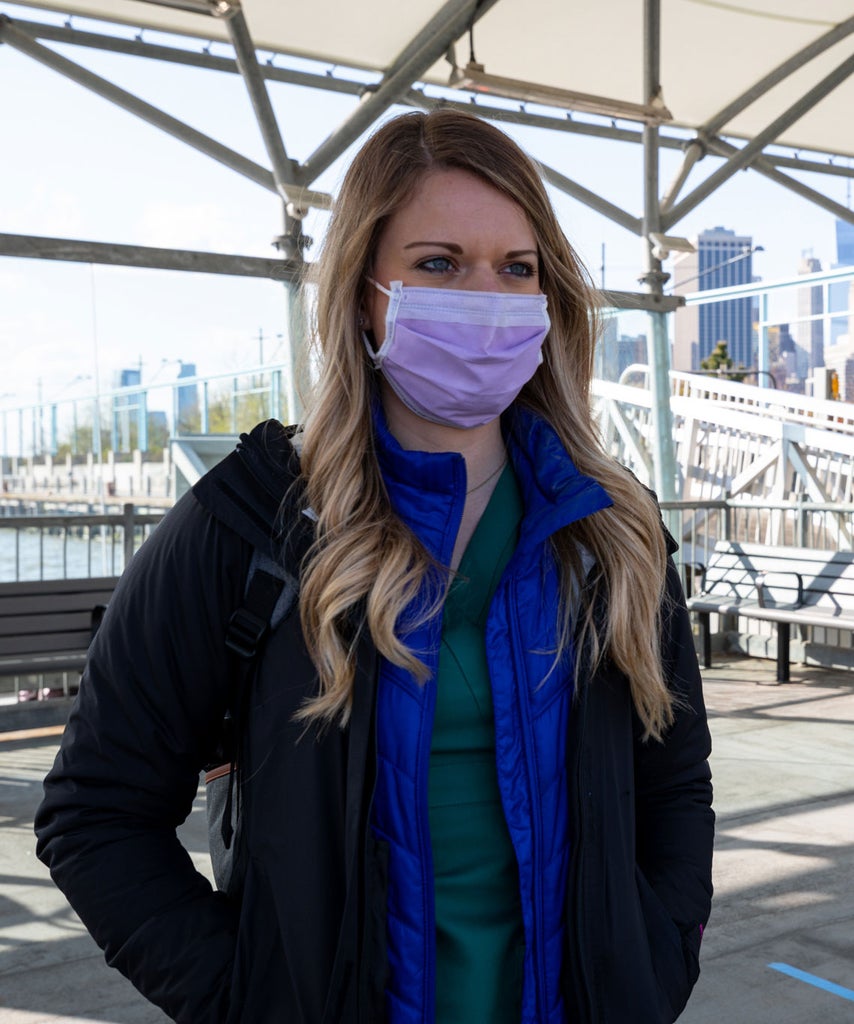Nurses Are Facing A Mental Health Crisis In The Midst Of The Coronavirus Pandemic
May 08, 2020DMT Beauty#DMTBeautySpot #beauty

A few weeks ago, Rachel Hartley had a bad day. She’d been working night shifts as a nurse at New York University’s Langone Brooklyn Hospital and things were looking bleak for one of her patients, a man in his late 30s who’d taken a turn for the worst. He’d already lost a parent to COVID-19 and his sibling was infected as well. He wasn’t her only patient that was failing, either. They all seemed to be dying.
“It hit me that there are so many people in the hospital at one time, and they’re so, so sick, and they were fine before all this,” she says. “They weren’t that old, they didn’t have many health problems. I just thought: This is so real and it’s destroying lives and tearing apart families. It was so sobering for me, and I got pretty emotional after work. That morning, I came home and cried, just mourning what is going on.”
Hartley is one of many nurses helping patients through their last days. This can take a major toll on their mental health, and is a kind of trauma that may continue to affect them even after pandemic dies down, says Cathleen Swody, PhD, a psychologist and a managing partner at Thrive Leadership.
“It’s hard to say that one group is suffering more than others on the front lines, but what makes nurses unique is that they are usually spending more time with patients,” says Swody. “They’re the ones coordinating phone calls with families, which must take a psychological toll… They’re repeatedly helping patients who are suffering and dying when their loved ones can’t be there to hold their hand. It’s creating additional sadness and anxiety in a job that’s already stressful.”

Healthcare workers in hospitals with COVID-19 patients reported higher than usual rates of depression, anxiety, and insomnia, according to a survey published in the JAMA Network Open journal in March. Among those with the most severe symptoms were nurses. This is especially concerning when you consider that they already have higher suicide rates than the rest of the population, according to a study by UC San Diego Health published in February.
Swody says this may be because even before the coronavirus crisis nurses worked odd hours, long shifts, and saw people die. “Now they have this acute stress — they might have more patients, less access to PPE,” Swody says.
Many are also afraid of catching COVID-19 themselves and spreading it to their families. “There’s generally a greater risk of exposure to trauma, and I think there’s a good chance of ongoing challenges related to this, similar to veterans of wars who have PTSD,” Swody explains. “I think it’s going to be important for nurses, and their employers, to remember that even when this dies down, what they’ve seen will still affect them.”
The conversation about healthcare workers’ mental health will be ongoing as we continue to get a clearer picture of the long-term ramifications of this crisis. But Swody says there are things that nurses can do right now to protect their mental health — and things their loved ones can do to help them as well.
For one, Swody encourages people to seek out therapy if they need it. There are more tele-health options these days that can accommodate nurses’ schedules. Hartley adds that many hospitals provide mental health resources and access to psychologists. “We should all be making nurses feel comfortable seeking out help, and trying to reduce the stigma surrounding therapy, especially in these unusual times,” Swody says. “It’s normal to experience these sorts of feelings, and we need to do what we can to take care of ourselves, whether that’s talking to someone, meditation, or going for a walk.”
It’s easy to talk about taking these steps, but difficult to actually take them — especially when you’re in the hospitals, helping patients fight for their lives. Swody encourages nurses to start small. “It can be just finding a minute to catch your breath,” she acknowledges. “It can be stopping in your doorway before you go home, and taking five deep breathes, or just finding a few minutes to check in with yourself and asking what you’re thankful for.”
For those who have loved ones who are nurses, keep tabs on them, even if you’re just sending a thoughtful text or connecting with them over FaceTime, Swody encourages. “It’s important to say: ‘Hey, I know you’re out there and I care about you and want you to know I’m here,’” she says. “Driving by hospitals with signs is great, but it’s even better if you can incorporate that personal touch by saying, ‘You’re my friend, and I know you’re out there dealing with a lot — I want you to know I see you.’ The heart of it is telling them, ‘You matter and you matter to me, as a person and as a nurse.’” You may not get a response; keep reaching out in a loving, unobtrusive way in order to create space for them and show them that they can lean on you whenever they want.
Hartley agrees that encouragement from others can make all the difference. When she’s having a rough day she relies on her support system, her husband and roommate who’s a nurse, as well as on her faith. During the pandemic, she left her job as an anesthesia pre-op nurse in Lynchburg, VA to work in Brooklyn, at the heart of the storm, where she felt she was needed. She sailed to New York City with her husband and a nurse friend on a sailboat named Turning Points, where she’s currently living.
She says that after her bad day a few weeks ago, she came back to the boat and talked things over with her husband over eggs, sausage, pancakes, and a cup of decaf coffee. “I’ve found it’s really helpful to talk to my husband about things, he’s so supportive,” she says. “We’re Christian, so we talk about things in terms of our faith. Mentally, that’s where I find my peace.”
She adds that although it’s been difficult to focus on self-care throughout the pandemic, she tries to remind herself to to enjoy the little things. “I try to take pleasure in small moments,” she says. “I love coffee, and in the mornings it’s nice to just have freshly roasted beans that I grind myself. I find a small amount of joy in that. I’ll also read the Bible in the evening when I wake up before I go to work. It helps me focus on why I’m here and what I’m doing.”
She also tries to let herself grieve when she loses a patient. “It’s okay to be really sad right now and it’s important to mourn what’s happening,” she says. “As nurses, we need to take care of ourselves.”
If you or someone you know is considering self-harm, please get help. Call the National Suicide Prevention Lifeline at 1-800-273-8255.
Like what you see? How about some more R29 goodness, right here?
The Coronavirus Is Hurting Female Nurses
I Just Became A Registered Nurse. Now What?
What It’s Like To Be A Nurse During Coronavirus
DMTBeautySpot
via https://www.DMTBeautySpot.com
Molly Longman, Khareem Sudlow

0 comments